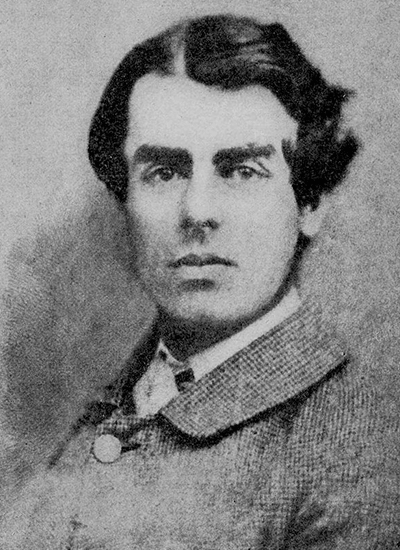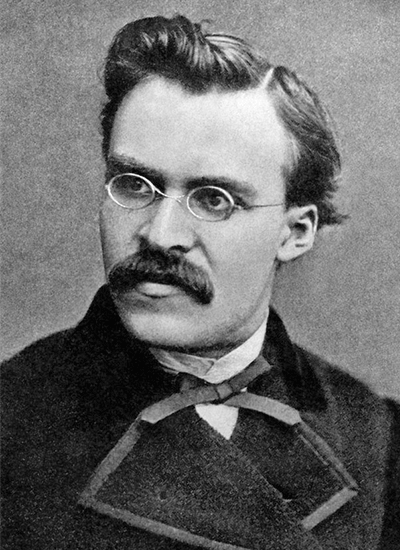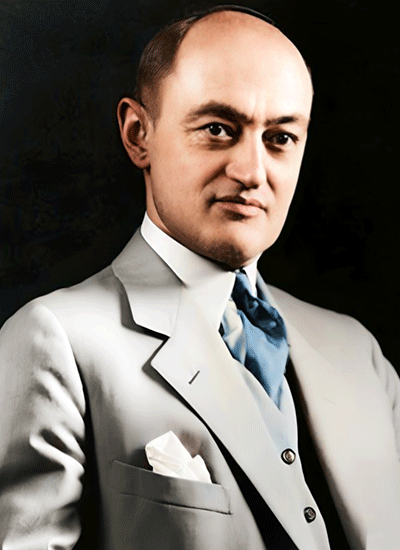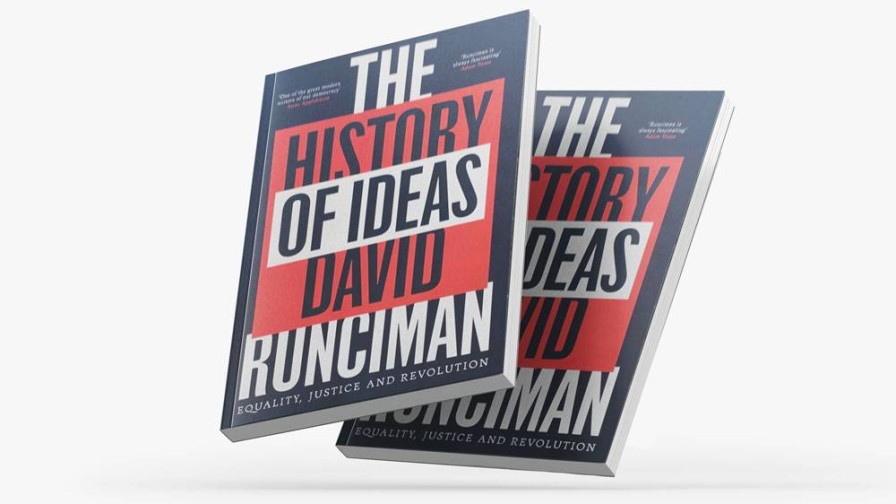Colonial prescience: Canterbury’s sheep-farming prophet
ANALYSIS: Anthology of great thinkers debate the relevance of equality, justice, and revolution.
The History of Ideas: Equality, justice and revolution, by David Runciman.
ANALYSIS: Anthology of great thinkers debate the relevance of equality, justice, and revolution.
The History of Ideas: Equality, justice and revolution, by David Runciman.
It’s not often you find a reference to colonial New Zealand in any work of intellectual history. But one short-lived settler managed it with prescient views that impinge on machine learning and artificial intelligence (AI).
Samuel Butler, the son of an Anglican clergyman, became a successful sheep farmer in his mid-20s after arriving at Lyttelton in January 1860. He explored the upper reaches of four Canterbury rivers before settling on what became Mesopotamia station in the Rangitata catchment.
Butler’s financial success enabled him to return to London after four years. He wrote of his experiences for the magazine of his University of Cambridge college, St John’s, and his father collected them as a book in 1863. Butler himself cheekily reviewed it in the fledgling The Press, mainly to get back at his father for statements in the preface.

Samuel Butler in 1858 before he travelled to Canterbury.
Fortunately, the article was anonymous, as were most of his erudite and controversial contributions. Roger Robinson noted in The Oxford Companion to New Zealand Literature (1998): “Their high spirits and chameleon perplexities indicate how far he now felt liberated to find his own voice.”
Butler was already obsessed with two issues that were to dominate his life’s work: the dubious credibility of the Bible and the significance of Charles Darwin’s theory of evolution, published a year before he travelled to New Zealand.
An article called ‘Darwin Among the Machines’ (June 13, 1863) has drawn recent attention because it explored the implications of machines evolving in the same way as Darwin’s species.
Butler elaborated on it in three chapters of Erewhon (1872), his most famous book and which Robinson rates alongside Thomas More’s Utopia and Jonathan Swift’s Gulliver’s Travels as the greatest examples of ironic fiction in English literature.
The relevant part for today’s debate over AI is Butler’s fantasising of an “upside-down” society, where all tools and machines, even watches, are banned because they could eventually replace humans. In this utopia, it was also a crime to cure illness and misfortune, based on Butler’s observations of Māori medicinal practices.
British political philosopher David Runciman devotes a chapter on Butler in A History of Ideas, a series of essays on how a dozen great minds tackled equality, justice, and revolution.
Runciman recently stepped down from his professorship at Cambridge to dedicate himself to Past Present Future, a podcast where he can roam freely through political thought without the constraints of academia.
His choice of subjects is eclectic and throws up a few surprises, Butler being one of them. The same concept was used in Confronting Leviathan: A History of Ideas (2022), which profiles another set of thinkers, notably Thomas Hobbes, Alex De Tocqueville, Karl Marx and Friedrich Engels, Mahatma Gandhi, Friedrich Hayek, and Francis Fukuyama.

David Runciman.
The latest group also combines some of the usual suspects with lesser-known ones: Jean-Jacques Rousseau, Jeremy Bentham, Friedrich Nietzsche, Joseph Schumpeter, and Simone de Beauvoir would easily fit in the first group. But, like Butler, the most rewarding are those you don’t expect: Former slave and campaigner Frederick Douglass, German revolutionary Rosa Luxemburg, and conservative Carl Schmitt, and three modern American philosophers, John Rawls, Robert Nozick, and Judith Shklar.
Runciman discusses their ideas, usually based on their most influential text, while often drawing threads from one to another. All hold views that are relevant to modern day practices in politics, economics, and business. Separately, they have brief biographies and reading lists for further study.
The most interesting ones challenge conventional and often mistaken notions about the most cherished values of Western civilisation: liberalism, democracy, and equality.
Butler, for example, uses inversion, or an upside-down world, to show the randomness of social conventions rather than injustices.

Friedrich Nietzsche in 1869.
“Many of our most deeply held beliefs are the products of chance, and to understand that is to understand something about ourselves. It doesn’t tell us what to do and it may be that the implication is that there is nothing we can do. But we should at the very least be careful of thinking that we know and can control who we really are,” Runciman concludes.
He also compares Erewhon with another example of Victorian inversion: Lewis Carroll’s Alice Through the Looking Glass (1871) but far less radical. Butler would have appreciated the modern judicial practice of criminals seeking leniency for their actions by blaming their parents.
Cynicism toward democracy is a recurring theme. Nietzsche was largely unread in his lifetime but became fashionable in the early part of the 20th century, when his negative views about Christian morality were contrasted with the vitality of heroic masters and that liberal democracy is “the negation of human life because it is designed to stifle human greatness”.
Schmitt’s The Concept of the Political, written in 1928 but not published until 1932, was a critique of liberalism and democracy against the experience of the Weimar republic. Liberalism’s advocacy of the individual had a double edge in politics, according to Schmitt: “Liberals are capable of doing nothing, they are also capable of doing anything.”
Similarly, democracy had its limits: it was collectivist, decisive, and action based. In Schmitt’s view, Weimar – then one the world’s most democratic with universal suffrage and proportional representation as well as features of the welfare state – was destined to fail.
Its parties were based on identity politics, were unable to compromise, and thus could not make decisions. While Runciman is critical of Schmitt’s analysis that politics is simply the business of state, and his later defence of Nazism, his ideas of liberal overreach became relevant during the war against terrorism.

Joseph Schumpeter.
Schumpeter’s Capitalism, Socialism and Democracy (1942) contains more cynicism. The exponent of capitalism’s “creative destruction” was second only to John Maynard Keynes as the world’s best-known economist during and after World War II.
Among Schumpeter’s ideas were that the dynamic qualities of capitalism also sowed the seeds of complacency; letting voters decide the common good was impossible and impractical. Proletarian democracy, he said, was a “fantasy” that could never be achieved.
He viewed socialism – collectivism, state control, redistribution, nationalisation, and full employment – as ditching democracy because it was a means rather than an end. Democracy would, as the revolutionary Luxemburg warned against Leninism, be the first go if it conflicted with the ideals of the revolution.
Moving to the late 20th century, Runciman highlights the clash of ideas in Robert Nozick’s Anarchy, State, Utopia (1974) as a riposte to A Theory of Justice (1971) by John Rawls. Nozick draws on the “natural rights” to life, liberty, and property first outlined by John Locke in the 17th century. But Nozick argues these should not be limited in return for protection from state, preferring Adam Smith’s “invisible hand” of the market to decide property rights and the division of labour.
Runciman rates Nietzsche’s On the Genealogy of Morality (1887) and de Beauvoir’s The Second Sex (1949) as the most remarkable books of those he discusses. Douglass’s My Bondage and My Freedom (1885) is the most moving but his favourite is Ordinary Vices (1984), by Latvian-born Jewish Canadian-American Judith Shklar, who died in 1992.

William Jackson Harper.
She was at Harvard at the same time as Rawls and Novick but has far less profile. Runciman is drawn to her critiques of past philosophers, including Rousseau, Butler, Bentham, and Nietzsche, as well as great writers.
Ordinary Vices ranked the five greatest sins and inspired a TV sitcom, The Good Place (2016-20), which is set in an afterlife where “heaven is hell”. The four main characters, including a moral philosopher, have had relatively worthless lives on earth. The philosopher, played by William Jackson Harper, lectures the others on ways to improve their lives, so they can move from a ‘bad place’ to the ‘good place’.
One episode condenses Ordinary Vices, putting cruelty as the worst sin ahead of hypocrisy, snobbery, betrayal, and misanthropy. The moral is that, when you are in a hell that looks a bit like heaven, it is worth paying attention to all the little cruelties of life.
Runciman goes out on a limb to describe Donald Trump’s cruelties – his mocking and combative attitude toward rivals – as part of his “brazen” political appeal. He lacks other “vices” such as hypocrisy. “He is sincere about being a liar, he doesn’t try to hide it or to dissemble his true character.”
Trump doesn’t feature in Ordinary Vices, but Runciman leaves us with the thought that toleration of the lesser vices – such as hypocrisy, snobbery, and betrayal – are not just a protection from cruelty, they also keep us free to be ourselves.

The History of Ideas: Equality, justice and revolution, by David Runciman (Profile Books).
Nevil Gibson is a former editor at large for NBR. He has contributed film and book reviews to various publications.
This is supplied content and not commissioned or paid for by NBR.
Sign up to get the latest stories and insights delivered to your inbox – free, every day.